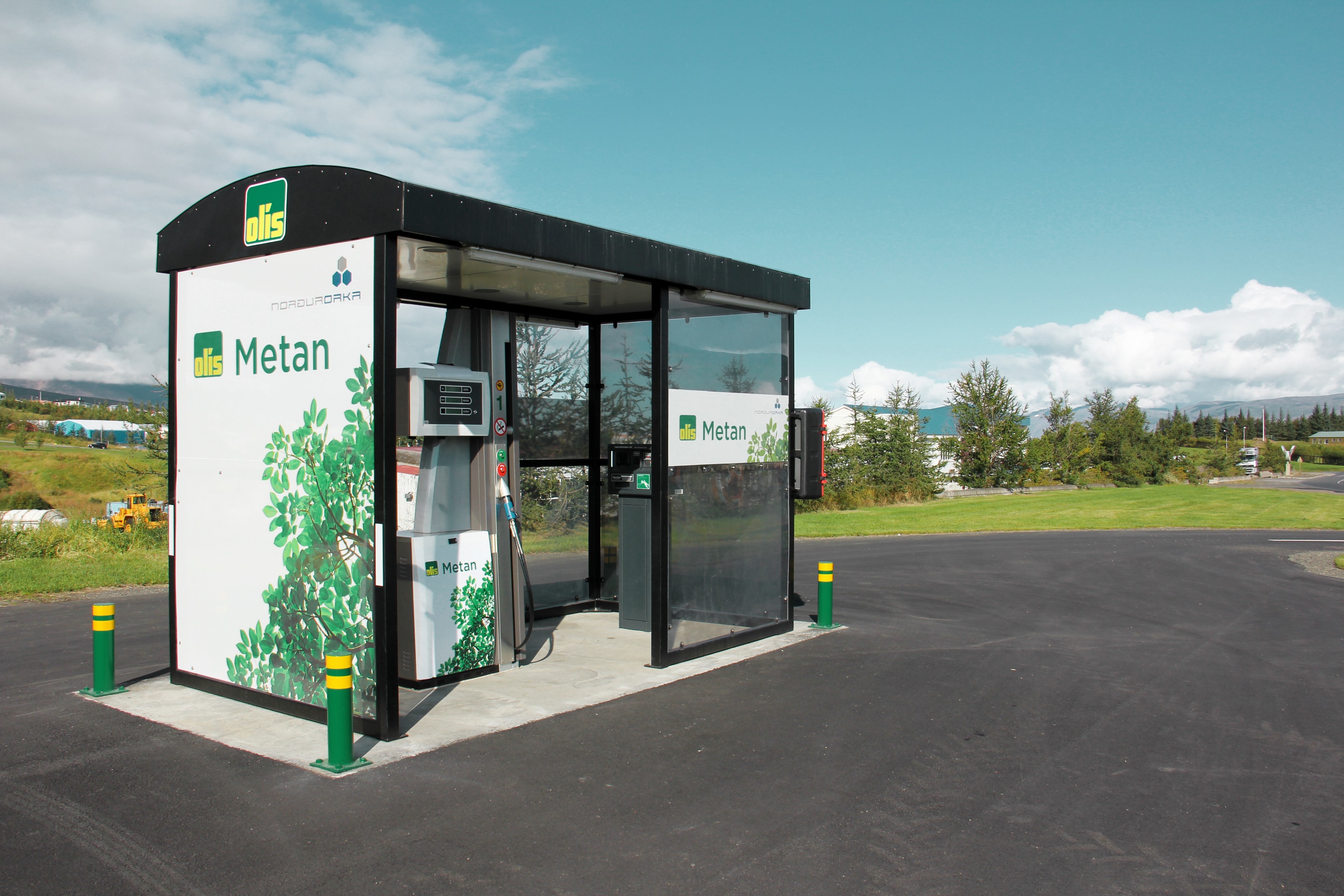The municipality of Akureyri with 18 230 inhabitants in northern Iceland has been working strategically in green growth over the past decade. Vistorka is a municipally owned company that was established in 2015 to facilitate the transition towards a zero-carbon future in Akureyri by providing support to start-up companies in the field of clean energy and green solutions. Vistorka’s main focus is on promoting the production of renewable fuels, fertilisers and feeds from waste streams.
Natural resources and a pro-active approach
Akureyri municipality has a low-carbon footprint because of its high share of geothermal and hydropower energy in final electricity and heat consumption. Despite this, greening of the transport sector remains a challenge because of its high dependence on fossil fuels. The municipal ambition has been to phase out fossil fuels from the transport sector by producing its own local fuels using different waste streams. In 2006, the municipality shifted to an environmental focus with the decision to make public transport free of charge, which also coincided with the closure of an old landfill site. Collection of organic waste from households was introduced as a new measure, which was intended to test if people were willing to participate in such developments. The results were much better than expected. A more proactive approach has been taken by the municipal actors towards ‘greener’ development.
Carbon-neutral Akureyri
In 2009, a composting plant was built in Akureyri. The plant converts biodegradable waste from households and industries in the area into high-nutrient soil for use as fertiliser. In 2011, a biodiesel plant was inaugurated, which produces biodiesel from used cooking oil and animal fat. Its fuel output corresponds to the fuel needs of approximately 300 vehicles. A blend of 1.5% biodiesel is used locally in vessels and vehicles. Since 2014, biogas has been collected from the old landfill and upgraded to a vehicle fuel. The most recent initiative is the reuse of plastic waste collected from farmers and industries for production of oil that can be used in large engines. The local bus service now runs on biodiesel and biogas. The municipality is continuously working on identifying valuable waste streams to increase efficiency of resource use, eliminate waste and increase biofuel production. Several projects are in the pipeline, including methane production from manure and a fat-rendering plant.

Cooperation strong but challenges ahead
A key driver for ambitious green growth work in the municipality has been a strong spirit of co-operation among the stakeholders in the municipality and their shared common vision for a green future. The initiatives have found strong backing and, in a triple helix set-up, key drivers have been private and public sector actors, academic partners from the University of Akureyri and the local community. The municipality is setting the scene for green growth through targeted investments in infrastructure for green vehicles and charging stations, procuring biogas buses, and building bike lanes. It also has an ambitious environmental policy, which will be updated in 2016. The actors in Akureyri are working together to achieve the goal of becoming carbon neutral and fossil fuel free by 2030. Among the biggest challenges is the lack of an economy of scale in the municipality. Investments in new equipment and technology are quite high, but the market is small and biofuel production is limited by a rather low local substrate availability. To overcome this challenge, Vistorka is working on finding production synergies between small local companies to obtain a better scale for the economy of these initiatives. By co-locating businesses and combining different production processes, and sharing equipment and staff, increased production efficiency and costs reduction are possible. The estimated potential reduction of CO2 emissions with the current investment is 15 000 tonnes/year. Carbon sequestration through afforestation and carbon capture using landfill gas contributes to further CO2 emissions reduction by 16 000 tonnes/year. The total investment in the projects over the past 6 years was €10 million.
Regional dimension
A strong focus on green growth has opened up new business opportunities and contributed to jobs creation in the area. Local renewable fuel production ensures local value creation, which stays in the region. There is a high acceptance and support of the initiatives among the local population. Residents are willing to pay more for locally produced renewable fuel and see it as part of their social responsibility. Akureyri municipality is among the leading examples in Iceland in the recycling of organic waste and is a role model for other municipalities.
Learn more…